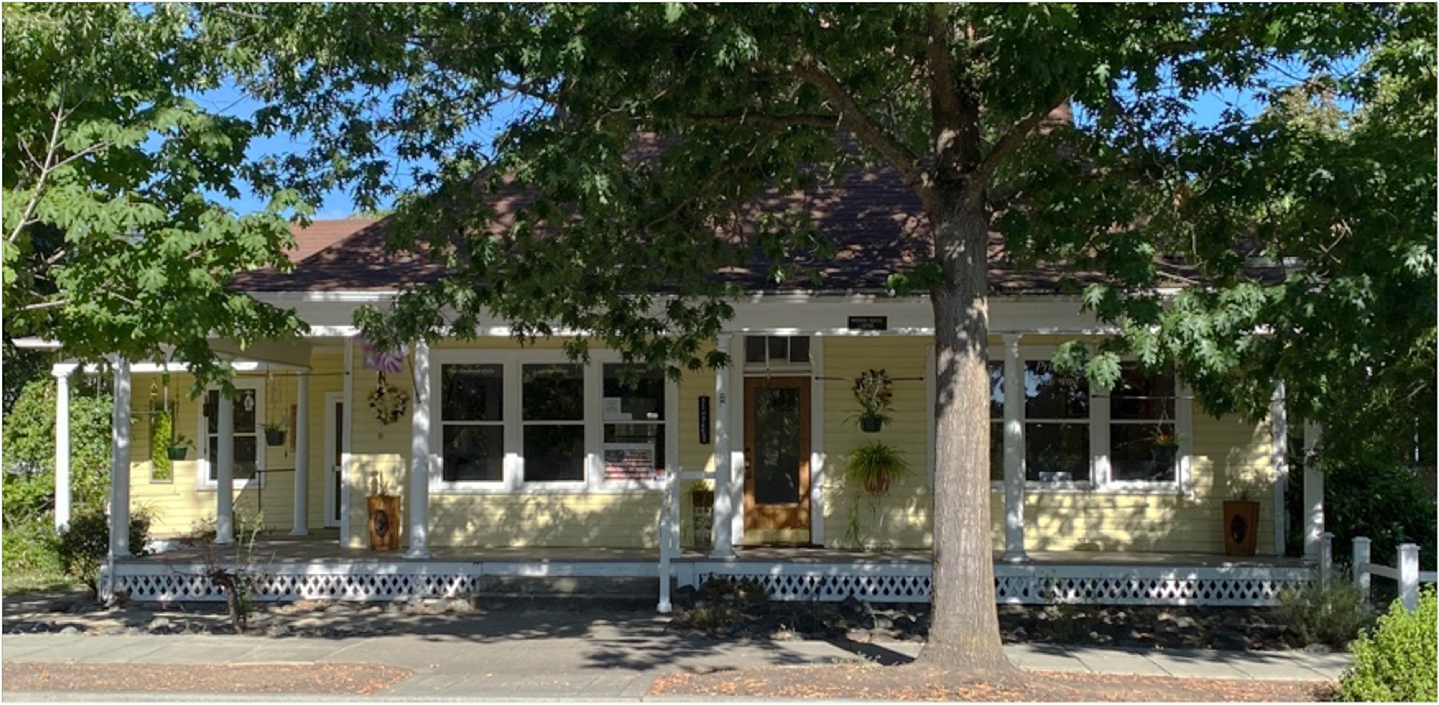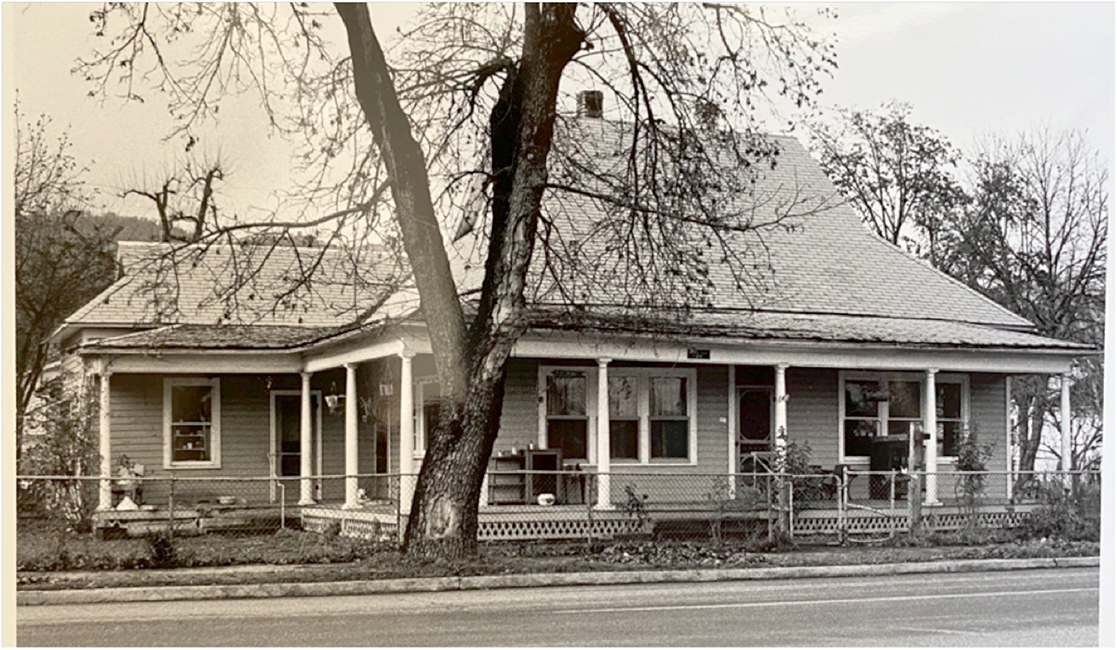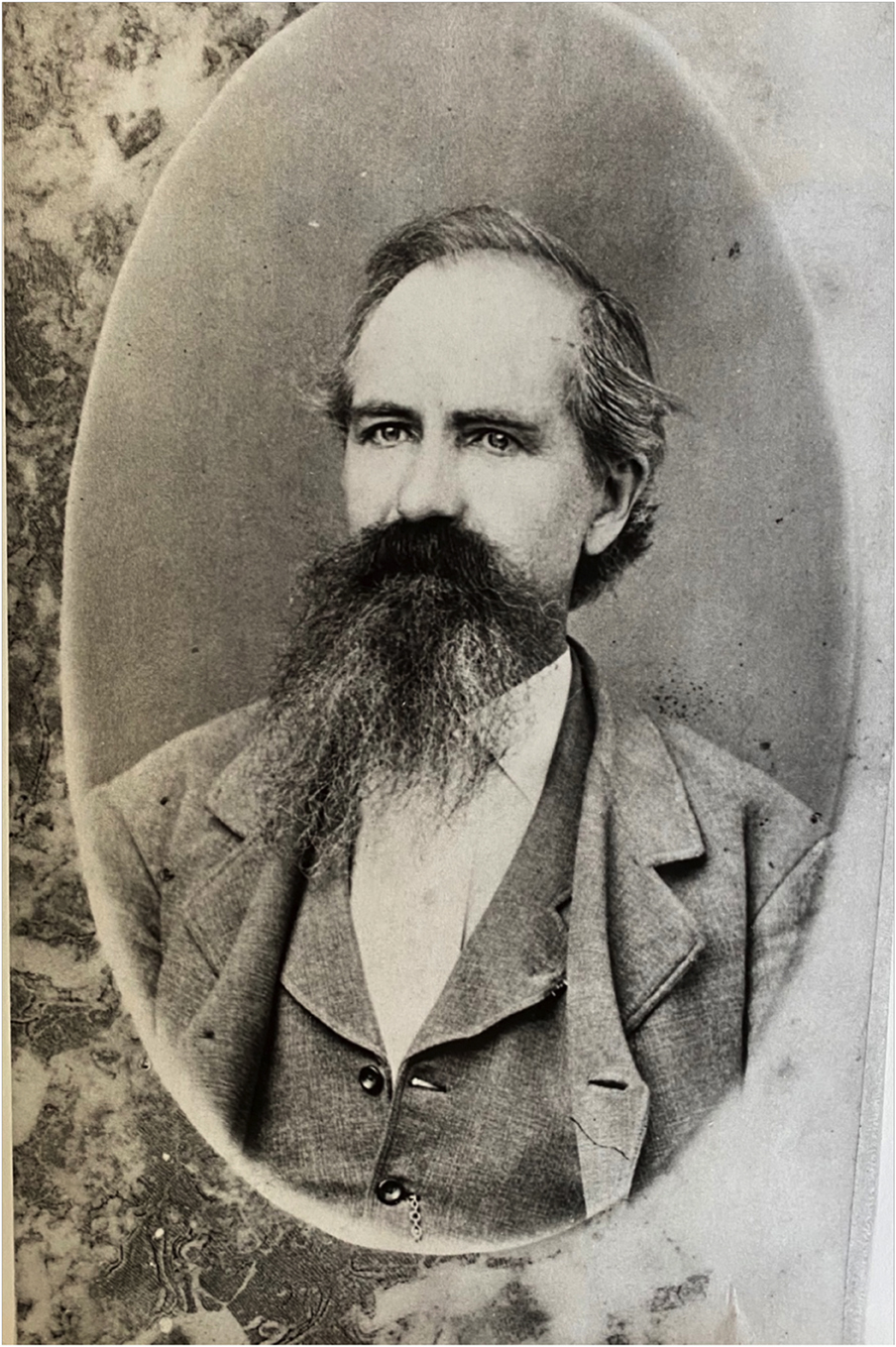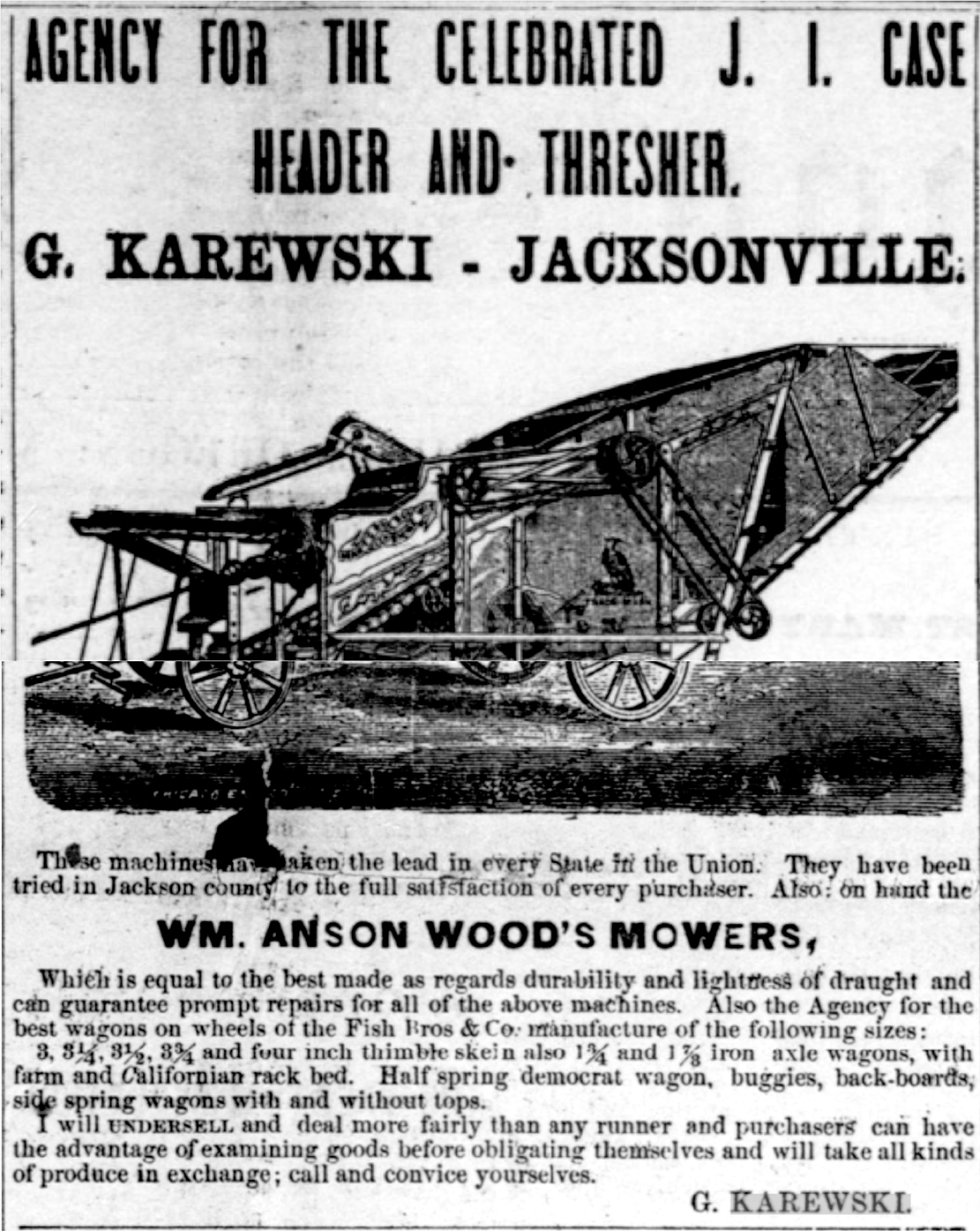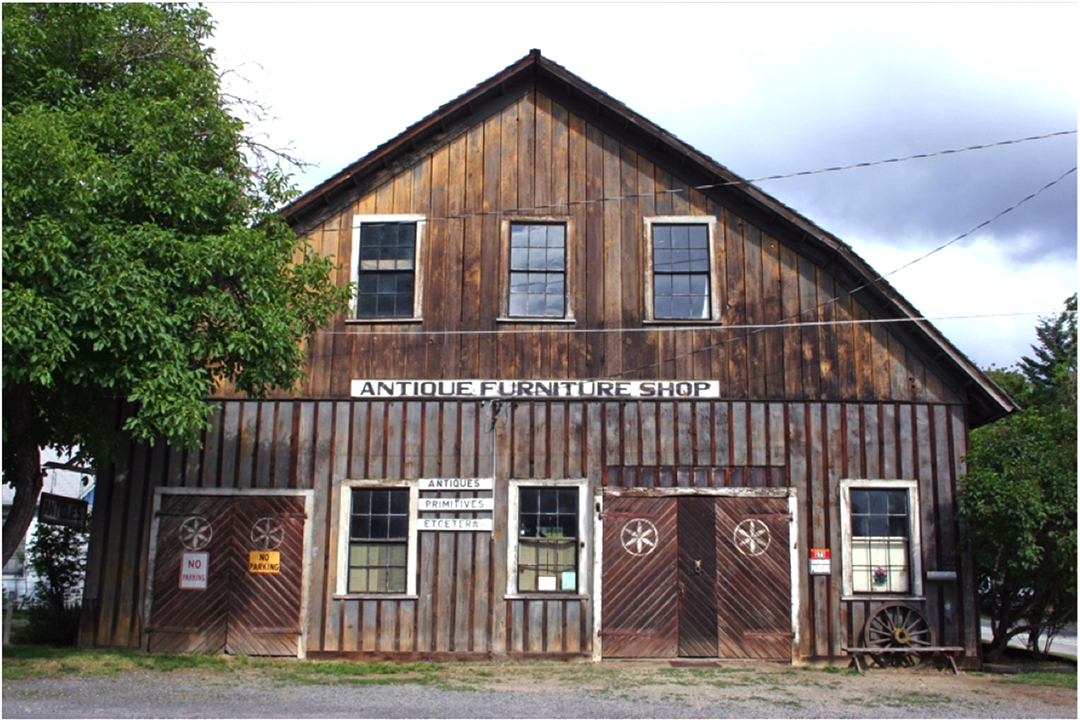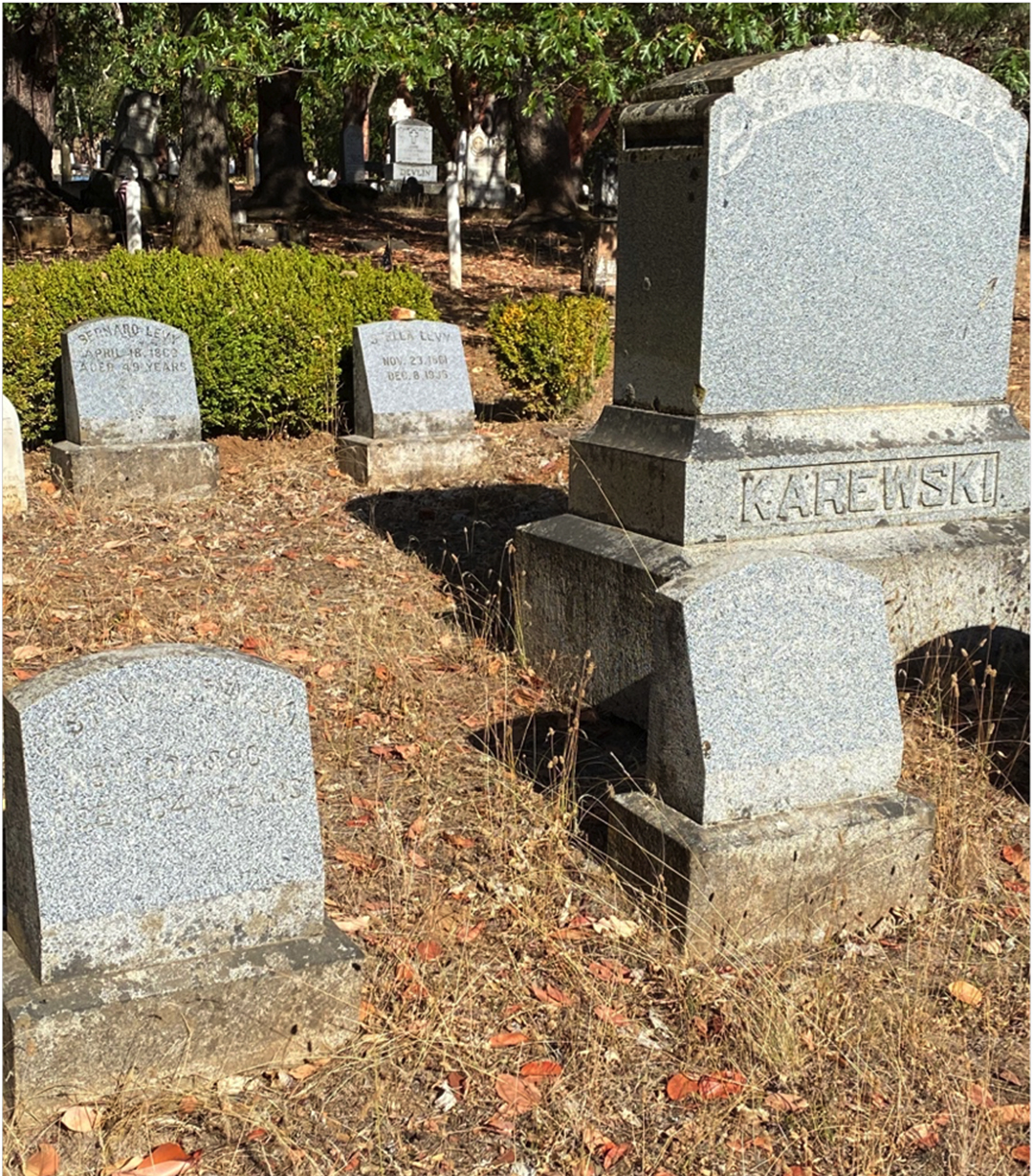|
A Virtual Walk Through Jacksonville History Stop 12: Gustav and Johanna Karewski House
In October 1866, Dr. E.H. Greenman purchased the northwest corner lot at California and North 5th Streets from C.C. Beekman. By 1868 Dr. Greenman was the county coroner (which makes for a good story if this were the Haunted History tour) and had bought additional lots in the block. That same year Dr. Greenman erected a rectangular home on the present site, the core section of what is known as the Karewski house.
Johanna Levy, a widow with four young daughters, bought the house in 1870. Her late husband, Bernard Levy, had been great friends with Gustav Karewski, and Karewski acted as the administrator of Levy’s estate. A friendship between Johanna and Gustaf developed as well, and they married and made a life together in this house and community.
Karewski, born in what is now Posen, Germany in 1826, had been part of the Jewish exodus from Central Europe in the mid-1800s. Shortly after his arrival in New Orleans, he heard tales of the gold discovery in California and joined the fortune seekers heading west. Sacramento Valley gold began giving out shortly after his arrival in 1851, but there were soon stories of new gold to be found in Southern Oregon, and he moved on to the Sterling Creek claims about six miles south of Jacksonville. Like many others he soon found panning for gold to be cold, hard, wet work. He acquired a string of pack animals and freighted in merchandise from Jacksonville–and later from Yreka when he found he could acquire goods there at lower prices. In 1854 he opened a general store in what was now called Sterlingville, so was able to make a double profit on his freight costs and retail mark-ups. Karewski cleared $20,000 his first year. Farms in the Rogue River Valley were productive, Ashland Mills provided flour, and Jacksonville supplied the other necessities. But a shortage of water was problematical. In 1860 he moved to Jacksonville, joining a group of prosperous Jewish merchants he met in the local synagogue. They helped him get his start, and by 1869 he had acquired enough capital to open his own store. For years he rented the Brunner building at the corner of South Oregon and Main streets, even building a huge warehouse in back to store his merchandise. His line was primarily groceries, dry goods and general merchandise. As gold mining faded out and agriculture became the dominant industry in southern Oregon, he began specializing in large farm machinery, becoming the only dealer in heavy equipment in the area. The editor of the Oregon Sentinel had this to say, “[Karewski] is agent for the best wagons that ever came into this market and for a style of mower that equals the best. Karewski always does as he says he will and purchasers will do well to try him.”
Karewski also had mining interests in Uniontown, owned a quartz mill in Josephine County, and a lumber mill there as well. In 1881 he had bought the southern portion of the block east of the County Courthouse and had the two houses at 305 and 325 North 6th Street built, probably as rental units. He “maintained a farm at one end of town, and a peach orchard on the other.” [Loyal readers may recall that Gustav also purchased the original courthouse (Stop #1), although we still don’t know whether he used it as a cow shed.] By 1881 Karewski had also purchased a three-story grist mill. Within four years, it was the third most productive in the state. Originally located on Third Street, around 1905 the mill was disassembled and moved to its current location near Third and D Streets to serve as a blacksmith shop. We know it as the Applebaker Barn.
Gustav Karewski died in Jacksonville in 1890. While we can’t always rely on obituaries, which are supposed to be complimentary and even flowery, we believe that Gustav’s obituary in the Democratic Times accurately sums up the life he led here and the high esteem in which he was held:
Johanna outlived him by 13 years. When she died in 1903, there remained only a handful of Jewish people in Jacksonville, so a Jewish burial became a community affair. Her funeral oration was given by Judge H.K. Hanna of the Circuit Court, and C.C. Beekman was one of her pallbearers. Joanna’s daughter Stella Levy inherited the house and owned it until her death in 1936.
Please join us next week as we continue our virtual walk through Jacksonville History.
Sources and References: “Table Rock Sentinel.” Dec. 1982. Oregon Sentinel, 5 May 1880. State of Oregon Inventory of Historic Properties. Democratic Times, 28 November 1890. Funeral Notice, Gustav Karewski Laythe, Joseph. “Crime and Punishment in a Mining Town: Jacksonville, Oregon 1875-1915.” Mining History Journal, 2002, pp. 28–41. “Oregon,” Mining and Scientific Press, San Francisco, December 26, 1868, page 407 Levinson, Robert Edward. The Jews of Jacksonville, Oregon. June, 1962. University of Oregon.
|
||
